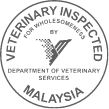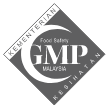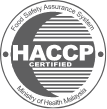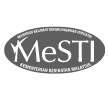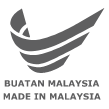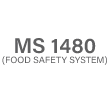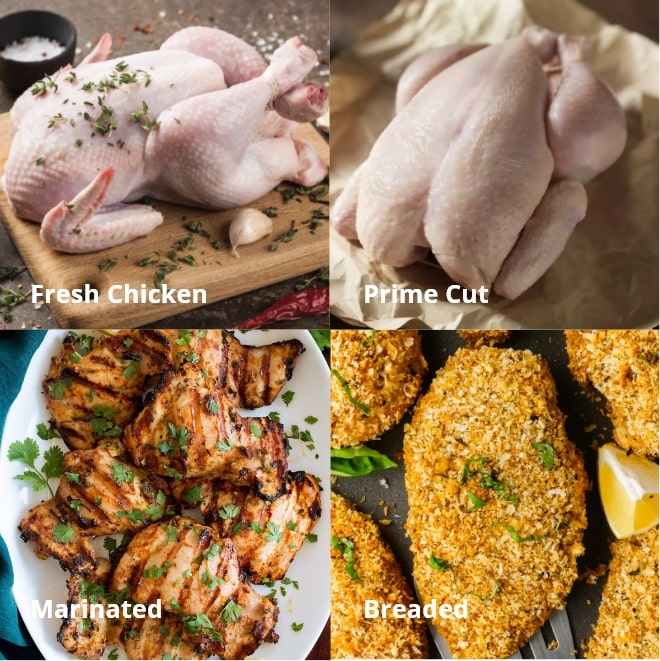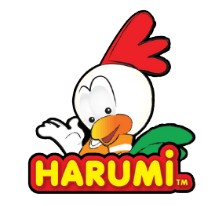Our Process
HARUMi Brands is one of the major halal food producers in Malaysia. Our facilities incorporate the latest technology available to produce consistent, superior quality and healthy poultry products for our consumers.
The Components
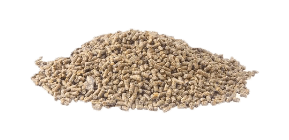
Feed
Formulated by a nutritionist, our feed contains imported corn, soya, essential vitamins and probiotics.
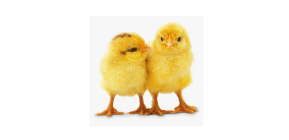
Chicks
It takes 25 weeks for chicks to mature enough to lay an egg, and 21 days for eggs to hatch.
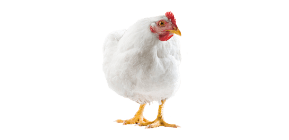
Farm
It takes 35 days to farm a standard 2kg mature chicken. This process is monitored by animal health specialists.
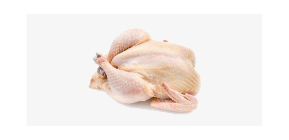
Poultry Processing Plant
Our poultry processing plant are all Japan and YUM approved and food safety certified.
Our Feedmill
About
Our feedmill plant, HARUMi Feedmill, started operations in 2002. It is currently located in Sitiawan, Perak in an area of 4.64 acres with a capacity of 12-15 metric tonnes per hour.
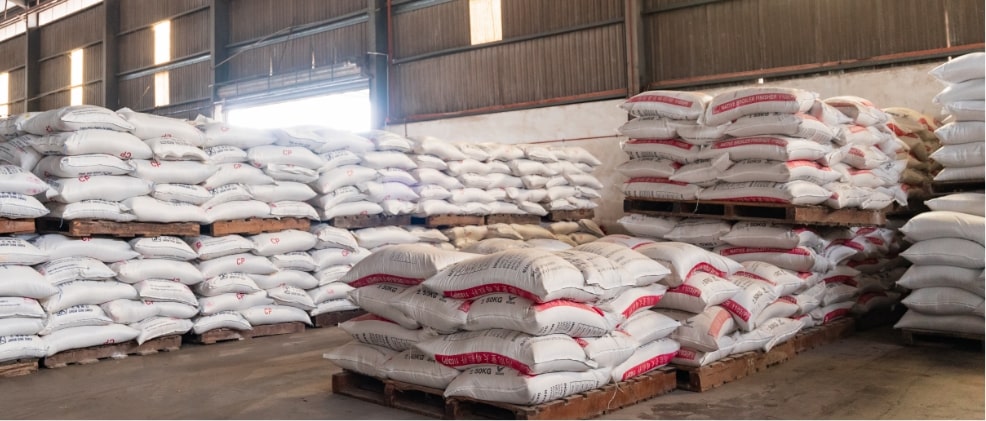
Production of quality poultry feed begins with careful selection of raw materials and formulations to achieve a balanced nutritional meal for livestock’s optimal growth. Our feed products comprise imported corn, soy, essential vitamins, minerals, probiotics and enzymes. Laboratory testing and continuous R&D are conducted to improve feed quality.
As one of the best partners for poultry farmers, we ensure that the feed produced uses a specialised formula to meet the nutritional needs of each stage in the broiler rearing process.
We maintain consistent & precise control over all our processes, as well as the quality & safety of feed manufacturing which comprises grinding, mixing, pelleting, packing & delivery. The consistency in ground ingredient particles are prioritised to ensure it meets our quality assurance standards.
We are equipped with a fully automated blending & mixing system to meet precise nutritional standards formulated by our nutritionists. Blending accuracy, automatic adjustment of material in flight tolerances, and statistical analysis of actual ingredient inventory usage are crucial & prioritised to maximize weighing accuracy and inventory controls to achieve precise nutrition for consistent & high feed quality for our poultry.
Our feedmill manufactures only poultry feed & this eliminates any cross-contamination possibility risks associated with multiple ingredients being processed in the same facility.
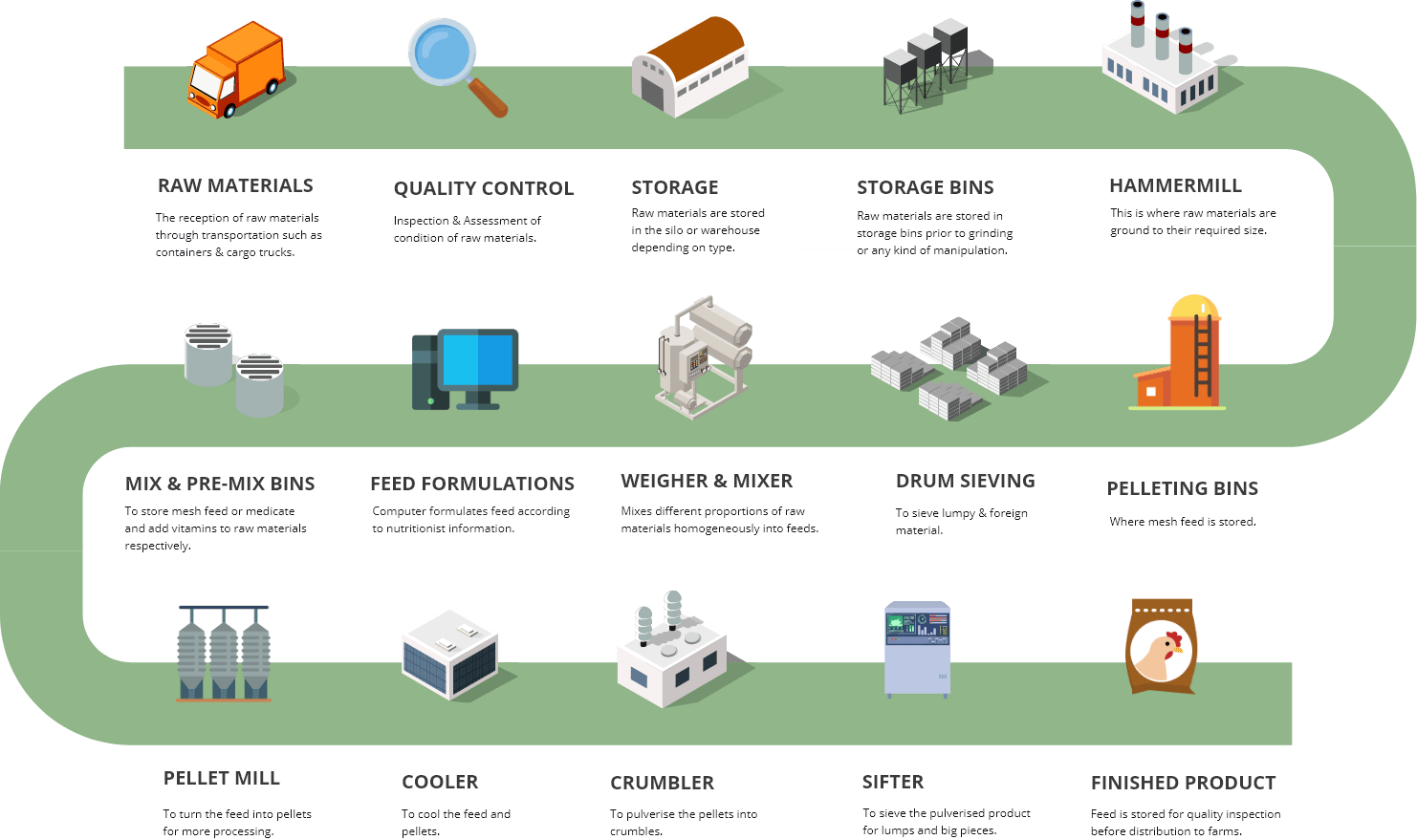
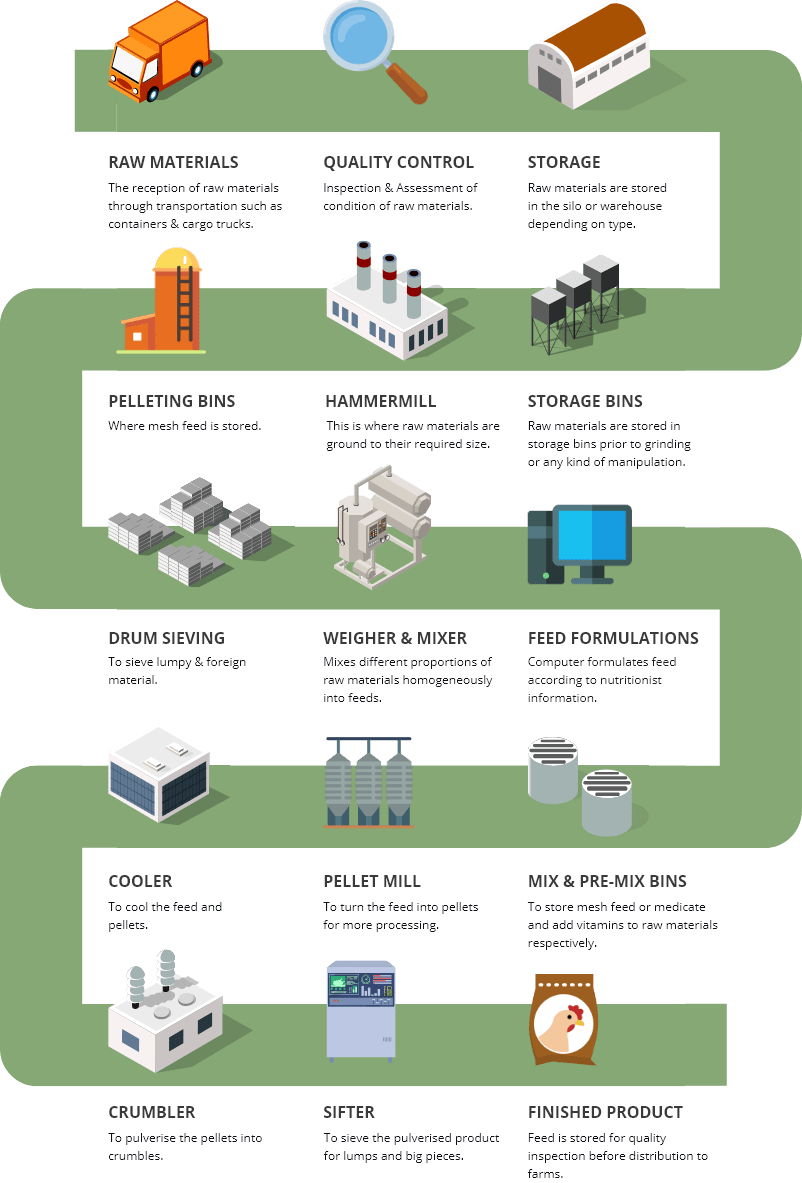
Quality Assurance
Our quality assurance starts before the process of purchasing whereby we demand ingredients made to specification (Certificate Of Analysis). Selection of suppliers is based on our approved supplier list. This pre-purchasing process ensures consistent high-quality feed. We also ensure our suppliers take note of the amount of anti-nutritional factors in our feed such as mycotoxin levels, free fatty acids (FFA), trypsin inhibitor.

Ingredient Inspection
Quality checks are done before unloading to ensure that the received ingredients are in compliance with our in-house quality standards. We inspect colour, texture, odour, moisture, water activity, foreign material, temperature and reject any ingredients if it does not meet our in-house quality standards .

Feed Pelletization
In order to achieve quality pellet feed, we consistently control and manage the steam volume, moisture and its temperature with optimum conditioning time as well as the selection of die are crucial. These are the essential parameters that contribute to the retention of nutrients, starch gelatinisation and feed palatability.

Traceability
Our feedmill also has the facilities for retaining detailed batch records & sample retention, showing the desired ingredient inclusion and the actual weight of inclusion of each and every raw material into any batch.

Sanitation
We conduct routine sanitation and have biosecurity programmes to control & prevent the growth of microbes & fungus in our facility, raw materials and feed.
At HARUMi Brands, we optimise the production process for good quality feed to ensure safe and quality livestock for our consumers.
Broiler Feed
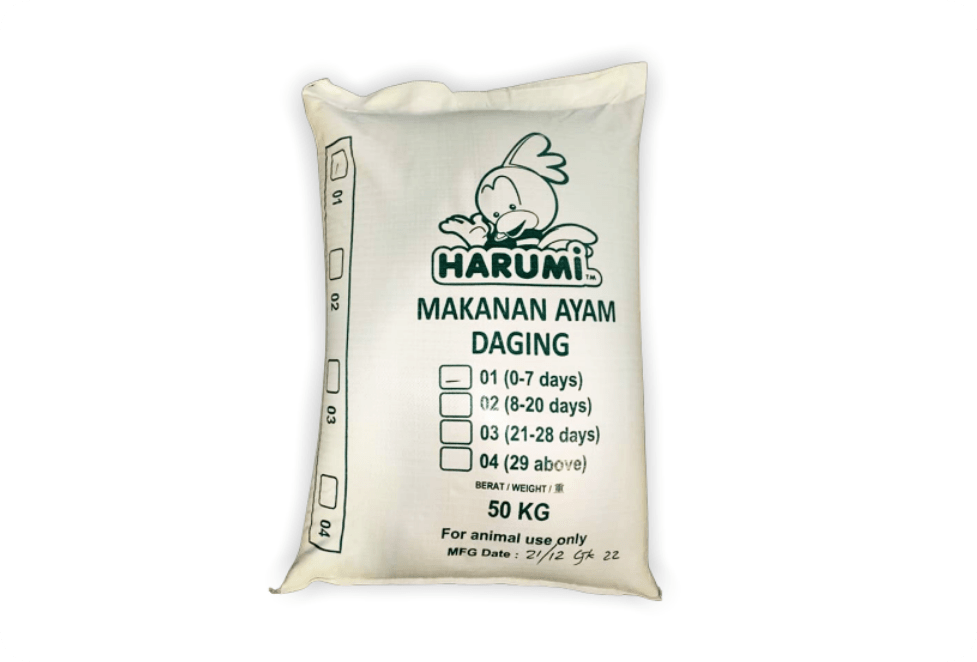
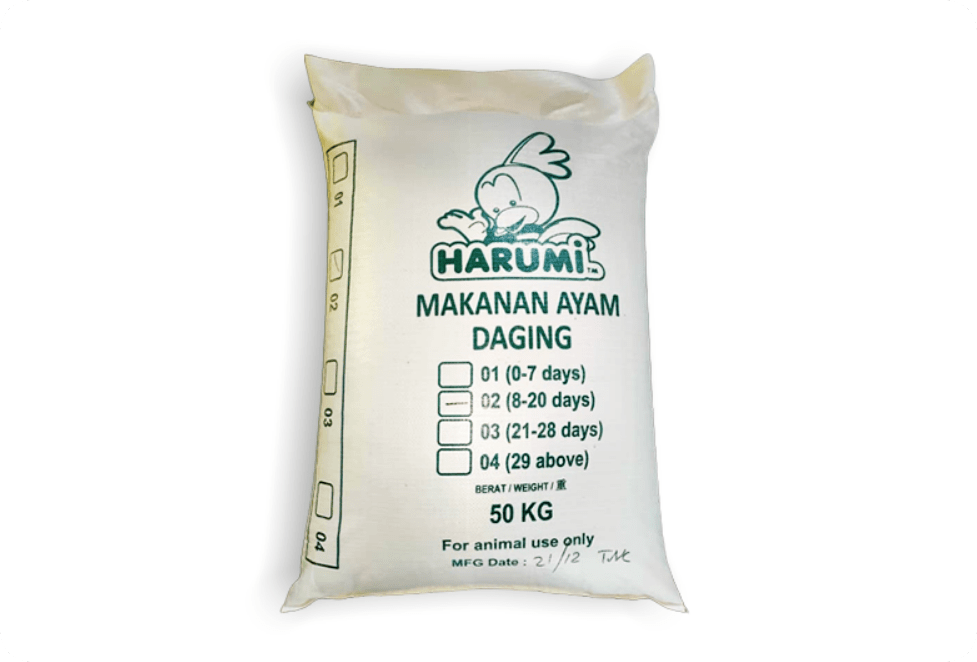
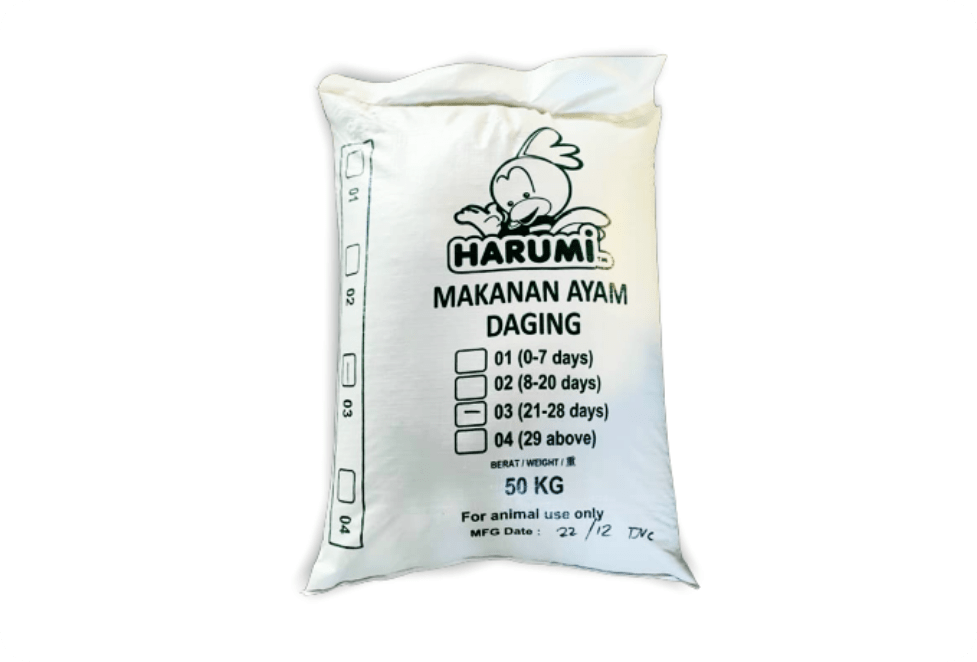
Day-Old-Chicks (DOC)
Ross and Cobb broilers are the main choice for broiler breeders because these breeds gain weight quickly and are slaughtered earlier due to their optimum flesh formation at a young age. This offers breeders with quicker solutions for their needs.

DID YOU KNOW?
According to breeding standards, broiler breeders will lay eggs between 23-week-old to 64-week-old.
The cycle of natural eggs hatching is 21 days in hatchery using an incubator. Only well-fertilized eggs and embryos are used to grow to become DOCs.
Quality
DOCs are 0-day-old and these chicks are sent by truck from the hatchery to the farm with a standard weight of 38 grams to 45 grams.
They are vaccinated to prevent Newcastle Disease (ND), Infectious Bronchitis Disease (IB) and Infectious Bursal Disease (IBD).
Good quality DOCs can be seen as healthy, with round and bright eyes, strong legs and strong standing and fluffy fur. They are also not too small and have no defects such as deformed feet and toes, crossed beaks, splayed legs and dry feet.
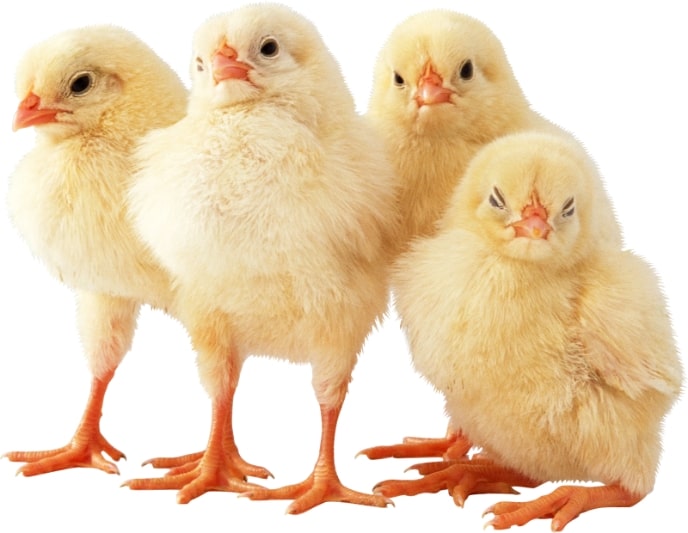
Live Broiler Chicken
Introduction
To ensure only a high standard of live broilers chickens sourced from our suppliers, the broiler farmers are required to meet the necessary requirements imposed by us and the relevant government authorities in their productions.
As most of our suppliers operate in a closed-house farming system, the live broiler chickens live in optimal condition with automated evaporative cooling systems, as well as feeding and drinking systems which are in line with animal welfare and health safety standards.
Certified by MyGAP, our suppliers ensure that the live broiler chickens are safe to be consumed and meet the international standards for the production of quality livestock including livestock health management program, biosecurity program, sanitary program as well as farm-waste and pollution management program.
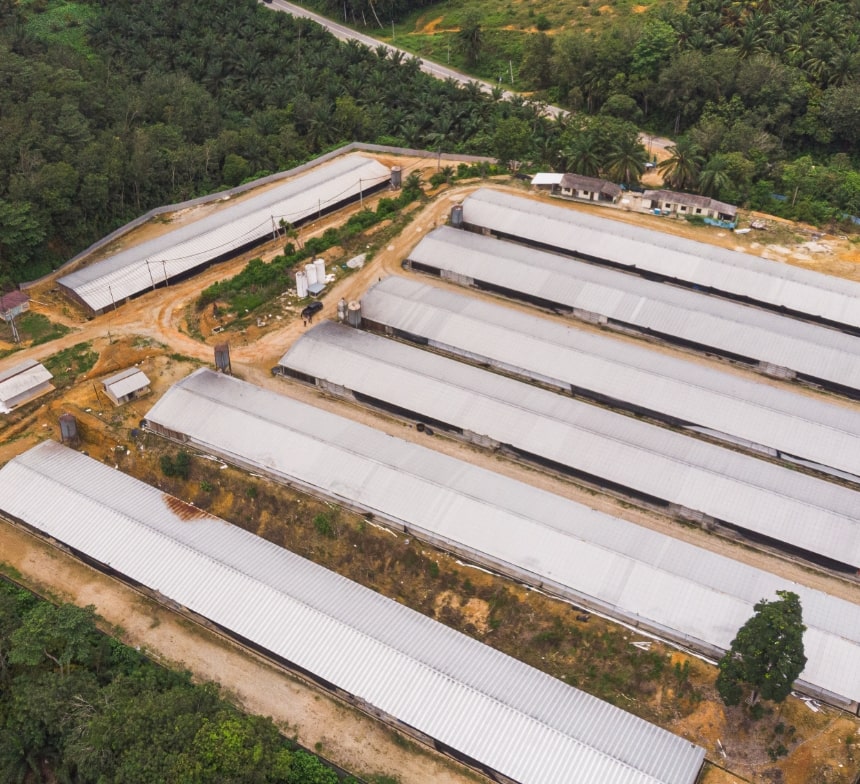
60 Days in 1 Cycle of Broiler Chicken Production

- Health Checks & Vaccinations
Regular health checks and vaccinations are implemented to ensure livestocks are healthy and disease-free from Salmonella, Avian Influenza, Campylobacter, Newcastle Disease and others. Chicken monitoring programs are also being carried out with the Department of Veterinary Services (DVS) Malaysia.
The broiler chickens are kept in stress-free conditions and the quality of food, beverages, and cleanliness of sheds and farm environment are monitored to ensure quality poultry alongside our biosecurity systems to ensure no diseases are brought in and out.
- Antibiotic Residue Free
The use of antibiotics is monitored by veterinary officers to ensure chickens are free of antibiotic residue before reaching optimum age.
- Recognition
MyGAP scheme is based on the concept of healthy livestock farming which is in line with Good Animal Husbandry Practice (GAHP)-MS2027:2006. Certified by MyGAP, our suppliers ensure that the live broiler chickens are safe to be consumed and meet the international standards for the production of quality livestock including livestock health management program, biosecurity program, sanitary program as well as farm-waste and pollution management program.
Live Broiler Chicken
Disease-free
Hormone & Steroid Injection-free
Antibiotic Residue-free
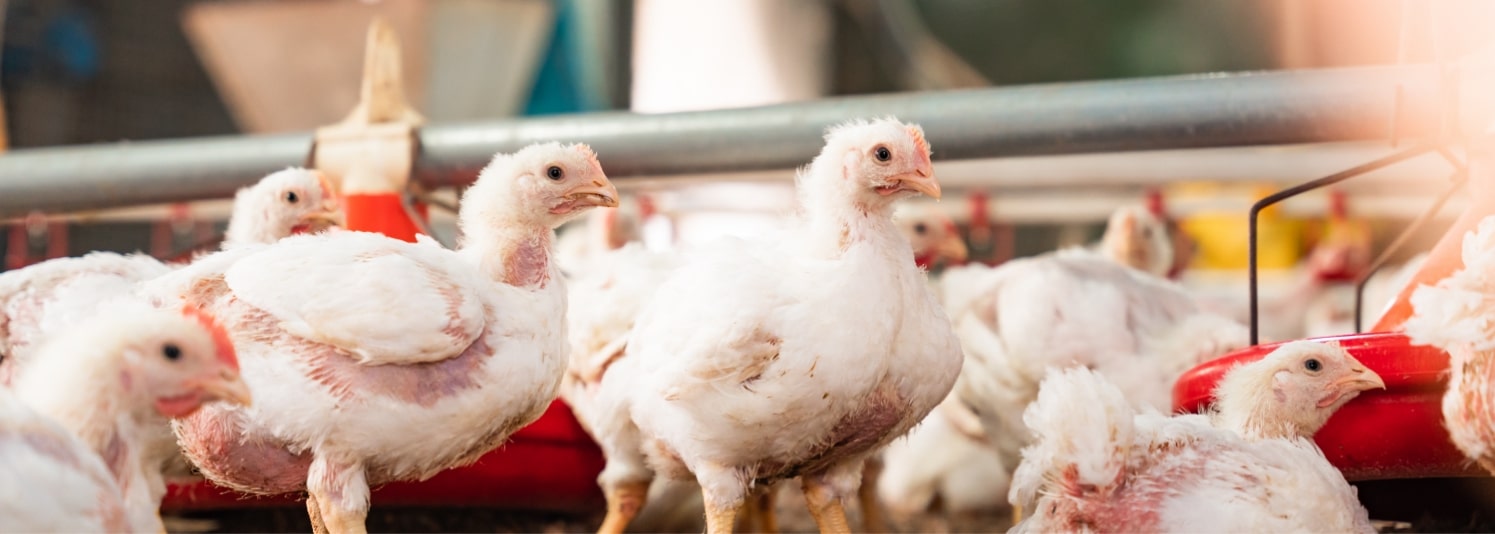
Poultry Processing Plant
About
In 1994, we started our poultry processing plant in Ipoh. Subsequently in 2005, it was relocated to our state-of-the-art export standard poultry processing plant in Sitiawan, Perak, known as HARUMi Poultry Processing Plant, in an area of 7.23 acres with a production capacity of 4,000 birds per hour and storage capacity of 1,000 metric tonnes.

Quality
Our poultry processing plant has been certified by the Department of Islamic Development Malaysia or popularly known as JAKIM for meeting the requirements of the Halal standards. We have also met the requirements of the relevant government authorities of Malaysia (such as Ministry of Health and Department of Veterinary Services) and possess certifications from quality certification bodies in Quality and Food Safety Management Systems (QFSMS) such as VHM, QAP, HACCP, GMP, MeSTI, MS1480, ISO 22000 and ISO 9001. Our poultry processing plant has also been approved by the relevant authorities of the Japanese government for export purposes and the parent company of one of the largest international fast food chains in Malaysia which is based in the United States of America.

R&D
Product Development
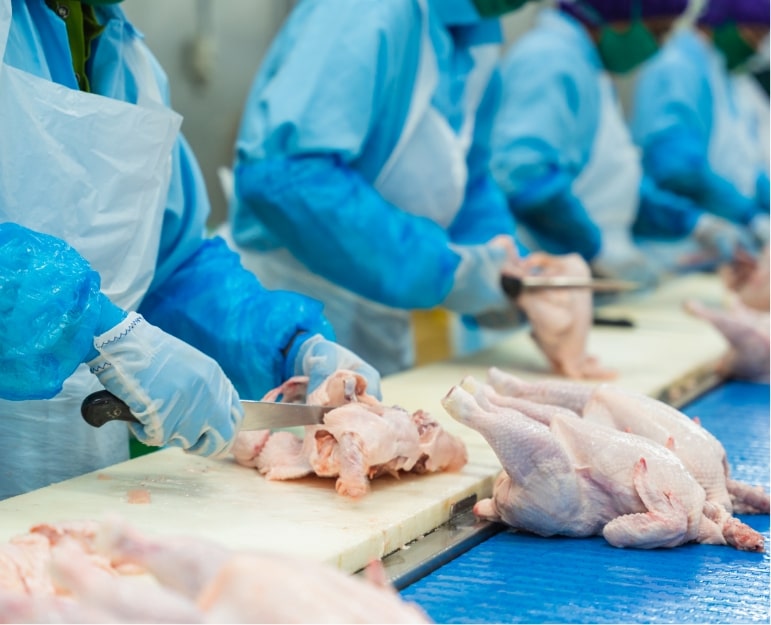
HARUMi’s R&D department is in charge of creating new products to meet and surpass customers’ desires. We are committed to consistently improve our existing line of products through meticulous research to rectify and optimize the standard of operations in the HARUMi production line.
Our R&D process consists of conducting market research to identify trends and customer demands, which leads to the start of product development. Sensory and consumer sampling are conducted with a controlled testing group to ensure the products are up to required standards. Our team then comes up with costing development on all aspects from production to commercialisation. A market study on the greenlit product is then conducted for a period of 3, 6 and 12 months to monitor and further improve the product.
Laboratory & Diagnostics
About
HARUMi Brands Quality Control Laboratory, which was established in 2006, plays a role in conducting analysis and diagnostics to support the entire system of high-quality chicken production. Our quality control program covers all parts from the feedmill plant, our suppliers’ broiler farms, and poultry processing plant to finished products. We conduct several types of quality control analysis in our labs, namely bacteriology, serology, parasitology, virology, mycotoxicology and food composition.
Our laboratory is equipped with high-tech equipment including real time Polymerase Chain Reaction (PCR), Near Infrared (NIR), UV spectrophotometers, biosafety cabinets, enzyme-linked immunoassay (ELISA) machines, incubators and autoclaves to ensure that each process and production of HARUMi products meets the hygiene and safety standards of the relevant government authorities and quality & food safety management certification bodies.
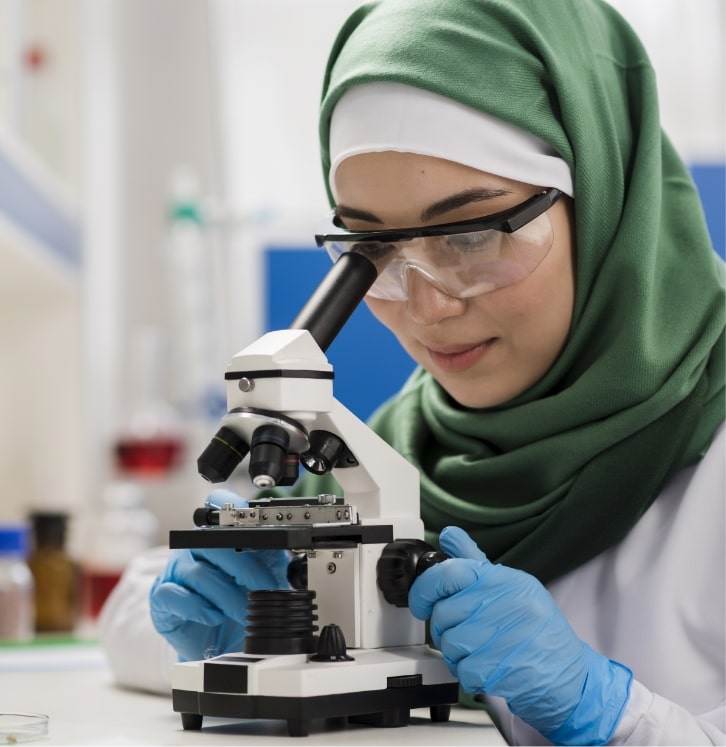
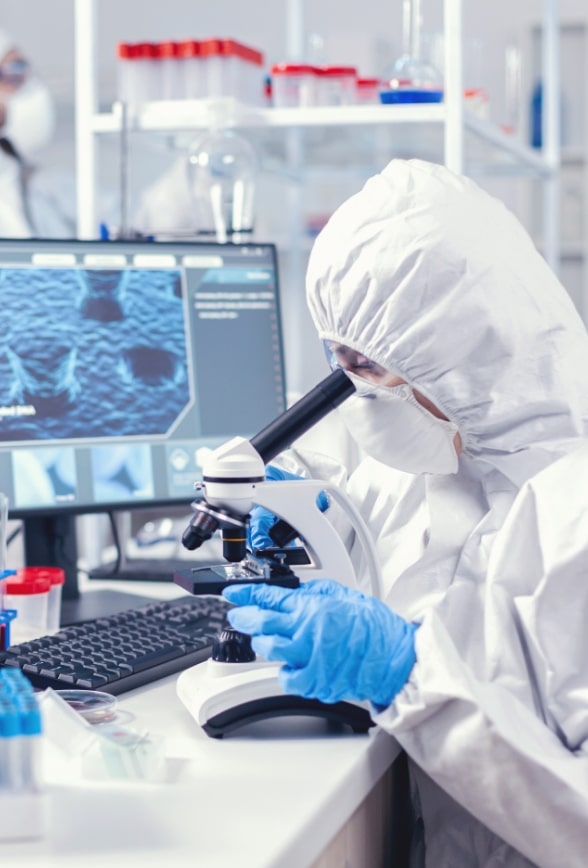
For bacteriology, our labs analyse bacterial count, isolation and identification of Salmonella spp., Escherichia coli count, coliform count, yeast and fungal count and identification and antibiotic sensitivity test, presence of Mycoplasma sp. through real time PCR.
Virological analysis is also performed using real time PCR machines to analyse the presence of viruses such as Infectious Bronchitis Virus (IBV), Newcastle Disease Virus (NDV) and Infectious Bursal Disease (IBD).
Serology is carried out to identify the presence of antibodies and the effectiveness of the vaccination process in the farm. Among the diseases involved are Infectious Bronchitis Virus, Newcastle Disease Virus (chicken pox), Infectious Bursal Disease, Mycoplasma Gallisepticum, Mycoplasma Sinovaie, and REO virus.
For mycotoxicology, among the toxicities analysed include Aflatoxin, Zearalenone, Deoxynivalenol, T2-Toxin, Famosin.
The analysis of feed content composition is to identify the composition of feed in terms of chemical and physical properties through the examination of moisture, ash, protein, iodine value, free fatty acid, peroxide value, and density.
Other analysis we do are to detect pig DNA and antibiotic residue analysis.
Types Of Analysis: Food content composition, mycotoxicology, bacteriology and pig DNA
Sample Type: Feed pellet sample (after the process is completed), crushed feed (during production), basic ingredients (corn, soy, fullfat, meat bone meal and megafat), swab mixer equipment and storage bin.
What we test for:
The composition of the feed content and basic ingredients is tested daily to ensure the quality and nutritional content of the feed is sufficient for the growth of the livestock. Mycotoxicology test is also done every week to ensure that there is no toxic content in finished feed that will affect livestock growth. Bacteriological analysis is carried out periodically, i.e. every week on pellet quality, as well as equipment swab to ensure optimum cleanliness levels. Pig DNA analysis is also done to ensure that there is no contamination in the production process of the feed.
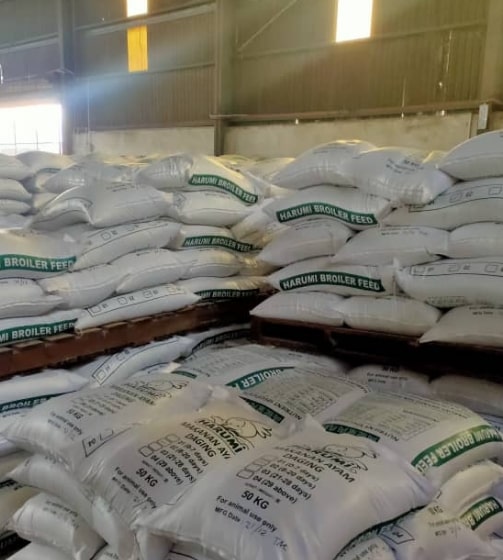
Types Of Analysis: Bacteriology and antibiotic residue.
Type of Samples: Chicken meat and equipment swab.
What we test for:
Our factory conducts hygiene checks on the processing equipment on a daily basis. This ensures that the amount of bacteria present does not exceed the standards set for all products. Antibiotic residue analysis is done on our chicken meat to ensure that there is no residue, ensuring that the chicken meat is safe and high-quality when it reaches Harumi’s loyal customers.
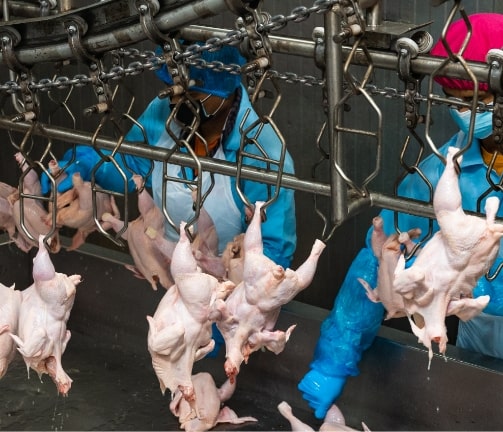
Types Of Analysis: Bacteriology, serology, virology, parasitology
Type of Samples: Swab of house samples after disinfection process, water, chick liner (wood chips), feed, chicken organs and blood.
What we test for:
Bacteriological analysis is performed routinely on chicken house that have been cleaned before each new intake of chicks. Swab on floors, feed and drinks equipment will be done in areas that have been checked by farm quality control staff. Quality inspection of chicks is also done to predict the growth quality of chicken.
Sensitivity testing to antibiotics is also performed to ensure proper use of the drug in each livestock farm. Serology will be performed periodically using blood samples to ensure the vaccination process is done correctly and to identify the presence of viral attacks in the livestock area. Virology will also be done periodically to ensure that there are no early bacterial and viral infections that occur at the beginning of the chick rearing process. Parasitological analysis will be done when there is a request by the farm if any related cases arise.
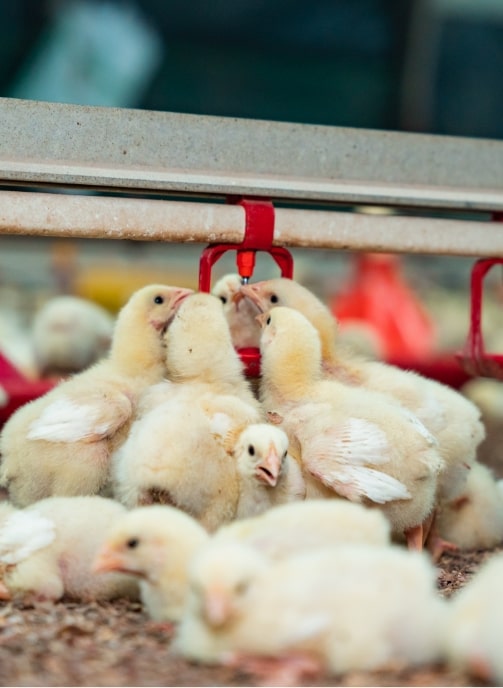
Get In Touch With Us
Message us today and we’ll set you up with chickens to meet your needs!
Our Certifications

